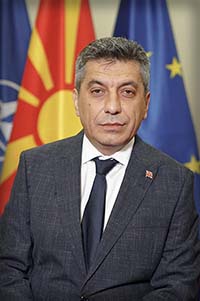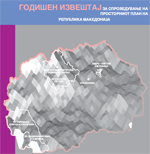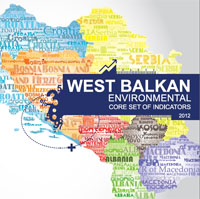Dealing with regional environmental and climate challenges through the implementation of the Action Plan for the Green Agenda for the Western Balkans and the promotion of regional cooperation, with special reference to the circular economy, was the focus of the speech of the Minister of Environment and Physical Planning, Kaja Shukova, at the high-level panel discussion organized within the framework of the Regional Coordination Meeting for the Western Balkans, entitled “Revolve to Evolve – Go Circular”, which was held today in Pristina.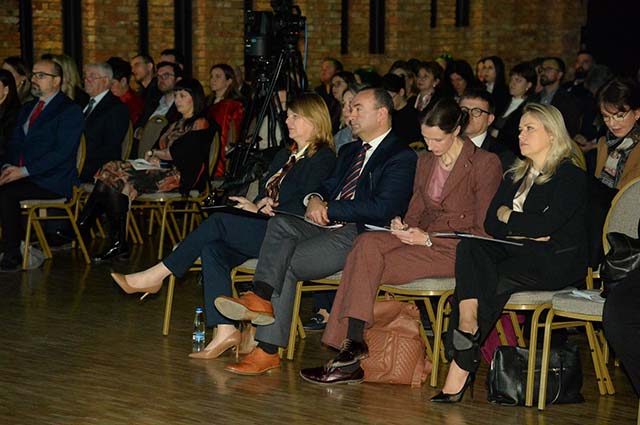
In her speech, Minister Shukova pointed out that we are aware of the challenges (degradation of the environment, climate change, loss of biological diversity, waste management, energy transition) faced by the countries of the Western Balkans region, but emphasized that these challenges are also seen as opportunities for growth and development.
– The priority action measures are aimed at accelerating the transition to renewable energy sources, implementing effective programs for reducing and recycling waste, protecting and restoring natural habitats and biodiversity, and promoting sustainable transportation methods and infrastructure. All these challenges should be aligned with the national absorption capacities, with international agreements and obligations related to environmental sustainability and other parallel processes in the region, such as the new Growth Plan for the countries of the Western Balkans, pointed out Shukova, adding that the strategic North Macedonia’s approach to accelerating fundamental reforms for progressive integration with the Union’s single market and socio-economic transition, as well as compliance with the laws, rules, standards, policies, and practices of the European Union, is in accordance with the new Plan.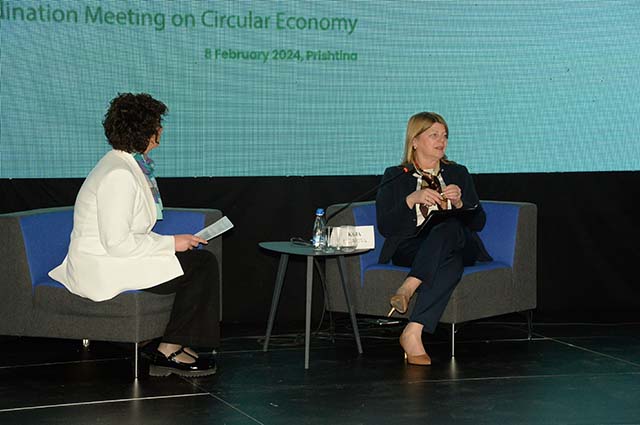
Furthermore, in her speech, Minister Shukova referred to the current efforts in implementing the principles of the circular economy, which represents a transformative framework for sustainable development in the Western Balkans and is key to achieving national, regional, and global climate goals.
In her speech, she referred to positive experiences from implemented measures and expressed satisfaction that the ban on the use of single-use plastic bags and the ban on the use of products packaged in plastic in protected areas are recognized and welcomed by the region.
– Our challenge is the coordination of all current processes at the national level (especially the reporting one) in order for all actions, goals, and measures to be consistent and achievable. Of course, the guidelines are clear; they are part of the Sofia Declaration and the Action Plan for the Implementation of the Green Agenda for the Western Balkans, as well as the legislation of the European Union. A government/private (business) sector/academy/NGO partnership is needed, but above all, knowledge and understanding of the expected goals and tasks arising from EU legislation are needed, Shukova concluded.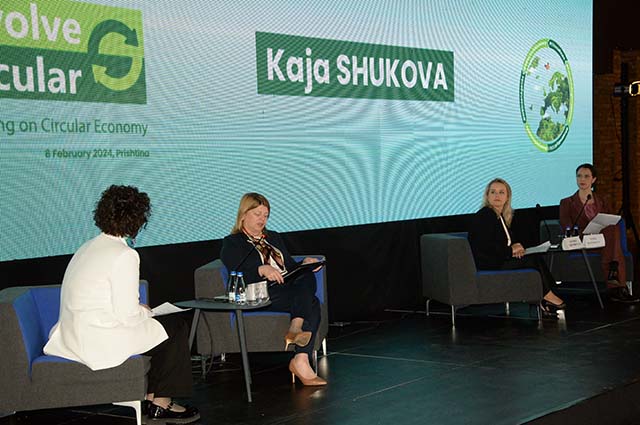
Focused on the circular Economy, this event aimed to identify regional needs, detect funding gaps, and improve coordination between donors, businesses, the industrial sector, citizens, and the economies of the Western Balkan countries, pushing them towards climate neutrality that should be achieved by 2050.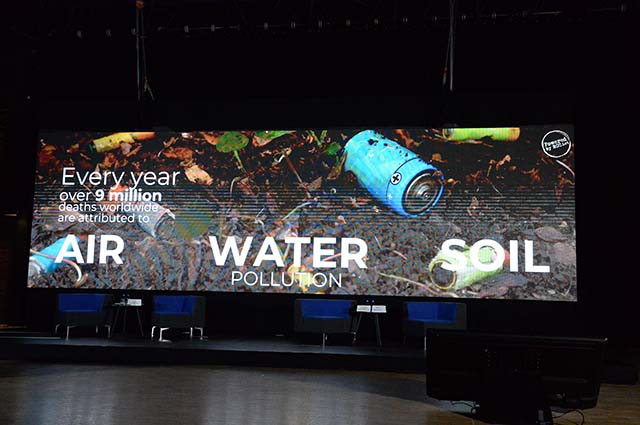
The event is organized by the Regional Center for Cooperation and the EU4Green project.






